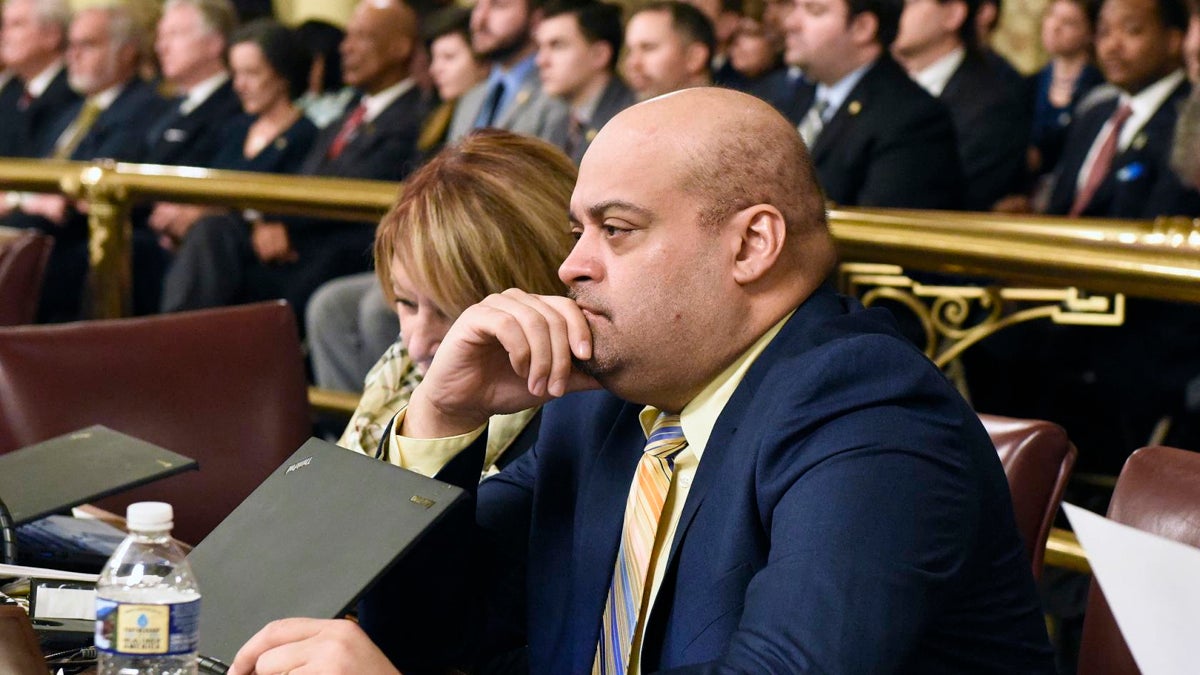Pa. lawmaker proposes measure to combat Philadelphia’s ‘Air Bridge’ problem
Listen
Pennsylvania state Rep. Angel Cruz, D-Philadelphia, has introduced legislation that would ensure welfare benefits to recovering drug addicts aren't stolen. (PAHouse.com)
A Pennsylvania lawmaker has a new proposal to stem the flow of heroin addicts from Puerto Rico to bogus treatment programs in Philadelphia — a system of exploitation known as “Air Bridge.”
Once they get here, the Air Bridge travelers find themselves in illegitimate recovery houses that profit from their addictions. Those who run the corrupt houses cash in on the residents’ Supplemental Nutrition Assistance Program benefits, formerly known as food stamps, sometimes collecting them even after the beneficiary has left the home.
State Rep. Angel Cruz, D-Philadelphia, has introduced a bill in the state Legislature that would try to stop the recovery houses that take part in this scheme from defrauding the public benefits system. Many of the Air Bridge victims end up homeless on the streets in Cruz’s district after a stint in the recovery houses. The bill would require the government to monitor recovery house operators who act as the “payees” of these benefits, receiving them on behalf of residents, Cruz said.
“If you’re going to be the payee, you’re going to be visited by the Department of Welfare every three months, to make sure that you have the person, that the person’s getting treatment, that the person is not being abused,” Cruz said.
If the monitors find otherwise, he said, the benefits will be terminated.
However, some in the addiction-treatment community are skeptical that Cruz’s bill would be effective.
Jose Benitez, the executive director of addiction services provider Prevention Point Philadelphia, said that recovery houses usually don’t officially serve as the payee for SNAP benefits.
“It just doesn’t happen that way,” Benitez said.
Instead, he said, the houses fleece their charges by forcing them to hand over their benefit access cards, but that the individual residents are still on record as the recipients. Therefore, the benefits to which Air Bridge victims are entitled wouldn’t be safeguarded by Cruz’s program, Benitez said.
Cruz, who said his legislation is just one step toward stopping Air Bridge, said more initiatives are needed at all levels of government.
The corrupt recovery houses participating in Air Bridge are also enabled by a lack of government regulation, he said. Currently, proposals are pending in the Pennsylvania House and Senate to institute new standards and regulations for these residences.
Recovery houses aren’t regulated as health care providers because they don’t provide treatment. They offer those recovering from addiction a supportive living community that, when run properly, helps them stay sober as they transition back to independent living.
Fred Way, the executive director of the Pennsylvania Alliance of Recovery Residences, said that the corrupt recovery houses taking part in Air Bridge make up a small minority of these sober-living communities. Way’s organization does independent certification of recovery residences in the state, and says it would never certify a home that seized control of a resident’s SNAP benefits.
“The whole idea of living in a recovery house is to learn life skills,” Way said. “One of those skills is to manage your own finances.”
WHYY is your source for fact-based, in-depth journalism and information. As a nonprofit organization, we rely on financial support from readers like you. Please give today.




